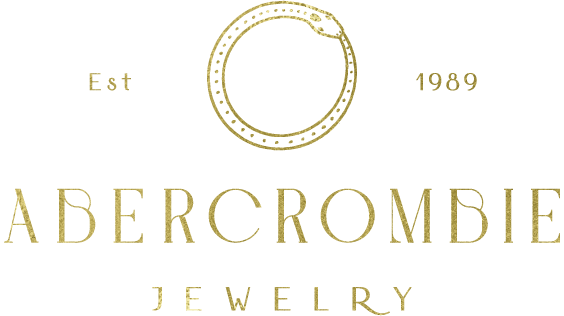Diamonds have captivated the imagination for centuries, embodying beauty, luxury, and enduring value. Diamonds hold sentimental and monetary significance, whether passed down as heirlooms or acquired through personal journeys.
But have you ever wondered how much jewelers will pay for these exquisite gemstones? This article will explore the factors influencing diamond pricing and shed light on what jewelers consider when determining their value.
The Four Cs: Carat Weight, Cut, Clarity, and Color
When evaluating a diamond’s worth, jewelers often rely on the renowned “Four Cs” grading system: carat weight, cut, clarity, and color. The carat weight measures the size of the diamond, with larger stones generally fetching higher prices. Cut refers to the diamond’s proportions and craftsmanship, affecting its brilliance and sparkle.
Clarity examines the presence of any internal or external flaws, with flawless diamonds commanding premium prices. Lastly, color assesses the diamond’s hue, with colorless stones (graded D) being the most valuable.
Market Demand and Trends
Like any commodity, the diamond market is subject to supply and demand dynamics. The popularity of specific diamond shapes, sizes, and styles can fluctuate over time, impacting the prices jewelers are willing to pay.
Additionally, market trends, such as consumer preferences for ethically sourced or lab-grown diamonds, can influence the perceived value of diamonds and subsequently affect the prices jewelers offer.
Certification and Authenticity
Diamond certification plays a crucial role in determining a diamond’s value. Independent gemological laboratories, such as the Gemological Institute of America (GIA), grade diamonds based on the Four Cs and issue certificates that authenticate their quality. A certified diamond carries a higher assurance of authenticity, boosting its market value and the price jewelers are willing to pay.
Wholesale versus Retail Prices
It’s important to distinguish between the prices jewelers pay for diamonds and the prices at which they sell them to consumers. Jewelers typically purchase diamonds at wholesale prices, which are lower than the retail prices they charge.
Wholesale prices account for the costs involved in the diamond supply chain, including mining, cutting, polishing, and distribution. Retail prices incorporate overhead expenses, marketing, and profit margins.
Negotiation and Market Conditions
Negotiation skills can impact the price jewelers are willing to pay for diamonds. Different jewelers may have different pricing structures and buying strategies. Factors such as the current state of the diamond market, the jeweler’s inventory levels, and the desirability of the diamond can influence the negotiation process. The relationship between the seller and jeweler may affect the final price.
Conclusion
Determining how much jewelers will pay for diamonds involves a complex interplay of factors. The Four Cs—carat weight, cut, clarity, and color—form the foundation of diamond evaluation.
Determining the price jewelers are willing to pay for diamonds is a multifaceted process influenced by various factors. The Four Cs (carat weight, cut, clarity, and color) are the foundation for evaluating a diamond’s worth. Additionally, market demand, certification, and the distinction between wholesale and retail prices significantly determine the final price jewelers offer.
It’s essential to recognize that not all diamonds have the same value, as their quality and characteristics can vary significantly. Sellers should consider getting their diamonds certified by reputable gemological laboratories to enhance their value and establish trust with potential buyers.
When selling a diamond, it’s advisable to research and compare offers from different jewelers, considering their buying strategies, market conditions, and inventory levels. Negotiation can also come into play, allowing sellers to secure a higher price based on specific circumstances.
FAQs
Q: How do jewelers determine the value of a diamond?
Jewelers assess a diamond’s value based on carat weight, cut, clarity, and color. These characteristics, along with market demand and trends, certification, and negotiation, influence the price jewelers are willing to pay.
Q: Do all diamonds have the same value?
No, diamonds vary in value due to differences in their quality and characteristics. Size, cut, clarity, and color affect a diamond’s worth, leading to price variations jewelers are willing to pay.
Q: Can I sell my diamond to any jeweler?
Yes, you can sell your diamond to any jeweler, but it’s essential to research and compare offers from different jewelers. Prices may vary based on individual factors, such as the jeweler’s buying strategy, inventory levels, and market conditions.
Q: Should I get my diamond certified before selling it to a jeweler?
Getting your diamond certified by a reputable gemological laboratory, such as the GIA, can enhance its value and increase the trust between you and the jeweler. Certification provides an independent assessment of your diamond’s quality and authenticity.
Q: Will jewelers pay the same price as retail customers?
No, jewelers typically purchase diamonds at wholesale prices, lower than the retail prices they charge customers. Wholesale prices account for various factors in the diamond supply chain, while retail prices include overhead expenses, marketing costs, and profit margins.
Q: Can I negotiate the price with a jeweler when selling my diamond?
Yes, negotiation is often possible when selling a diamond to a jeweler. Factors such as market conditions, the jeweler’s inventory levels, and the specific diamond’s desirability can influence the final agreed-upon price.
Q: Are there any market trends that impact diamond prices?
Yes, market trends and consumer preferences can influence diamond prices. Factors like changes in demand for specific diamond shapes, sizes, or styles and evolving preferences for ethically sourced or lab-grown diamonds can impact the perceived value of diamonds and the prices offered by jewelers.
Q: Is it better to sell my diamond to a jeweler or through an online platform?
The decision to sell your diamond to a jeweler or through an online platform depends on various factors, including your preferences, the diamond’s characteristics, and the offers you receive. Exploring multiple options and evaluating their pros and cons can be beneficial before deciding.
Remember, when selling a diamond, seeking professional advice and conducting thorough research is essential to ensure you receive a fair price for your precious gemstone.
